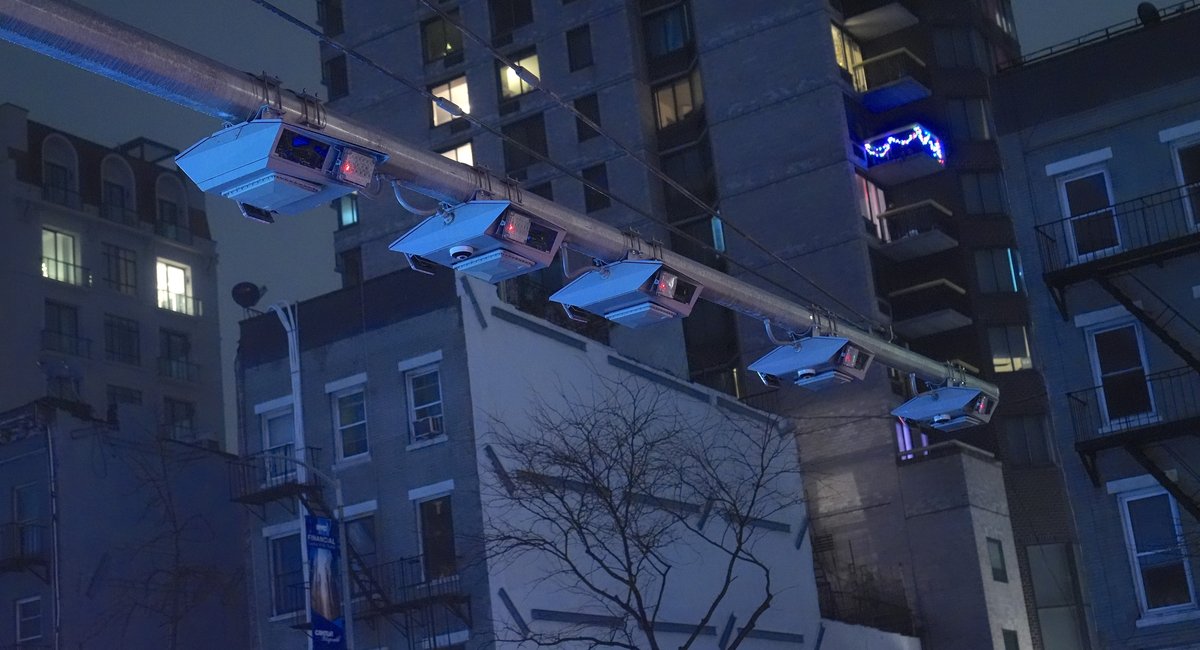Congestion pricing is expected to go into effect Sunday because of a federal judge’s ruling rejecting a last-minute challenge brought by the state of New Jersey.
The decision Friday evening by U.S. Senior Judge Leo Gordon clears the way for the MTA to begin charging the toll as scheduled on Sunday, the culmination of a years-long planning process for a program designed to decrease traffic in Midtown and Lower Manhattan while raising billions of dollars for the MTA.
“In a nutshell, denied,” Gordon said, rejecting New Jersey’s arguments for a delay of the tolls.
Attorney Randy Mastro, representing New Jersey, vowed to appeal — meaning the legal fight could continue through the weekend.
Gordon’s ruling amounted to a follow-up of a 72-page decision he issued Monday that was largely in the MTA’s favor, but failed to clearly state whether the agency could turn on the tolls as planned. The judge found that the MTA had conducted an adequate analysis of the tolling program, which has a base fare of $9.
But in his prior ruling, Gordon ordered the MTA and the Federal Highway Administration to provide more specifics about how they will address added pollution and traffic in New Jersey once the tolls are turned on. That opened the door for Mastro, who is representing New Jersey Gov. Phil Murphy’s office, to file an emergency motion seeking to delay the start of the tolls. Mastro argued the ruling effectively retracted federal approval for the toll.
“Please put a stop to this,” Mastro said to the judge during Friday’s hearing. “You are the last line of defense. Now is the time to say stop.”
The MTA and Federal Highway Administration countered that Gordon’s demand for additional information did not change the timeline for launching the tolls. They said New Jersey had overstated the environmental consequences of new traffic patterns once the tolls go on.
“The time for debating and lawsuits is over. It’s time to make sure this new initiative is a success, and I think we’re ready,” MTA Chair Janno Lieber said.
Because of the the judge’s decision, the city expects to flip on its tolling cameras Sunday, automatically billing drivers as they cross into the Manhattan tolling district. The toll is expected to raise about $500 million annually for the MTA, money the transit system will then use to help pay for infrastructure improvements and other capital upgrades.
It marks the latest in years of legal and regulatory wrangling over the program, which was originally supposed to go into effect in June before New York Gov. Kathy Hochul abruptly put it on hold.
Passenger vehicles with E-ZPass will be charged the base $9 toll from 5 a.m. to 9 p.m. on weekdays and 9 a.m. to 9 p.m. on weekends. Overnight, the toll is $2.25. The toll is higher for commercial vehicles like trucks and buses, and lower for motorcycles.
Uber and Lyft trips into the tolling district will be charged $1.50, while taxis and cabs face a charge of $0.75.
Gordon’s deadline for additional disclosures from the MTA and Federal Highway Administration about pollution mitigation in New Jersey runs into February, when Republican President-elect Donald Trump will be in office.
Trump has been an outspoken critic of congestion pricing, giving opponents of the toll hope that the incoming president may be able to stop the program — which required federal approval.
Rep. Mike Lawler, a Republican from the Hudson Valley who is one of the leading critics of the toll, called the program “nothing more than a scam” that “must be stopped.” Republicans will control the White House and both houses of Congress once Trump is sworn in.
“We will do everything in our power to stop it — through the executive branch, the legislative branch and the judiciary,” Lawler said.
New Jersey’s lawsuit claims federal transportation authorities essentially rubber stamped the congestion pricing program, rather than give it a full review of the potential environmental effects in New Jersey and beyond. They’re pushing for a lengthier study that would push the toll off well into the Trump administration.
Hochul’s administration and the MTA had been engaged in settlement talks with Murphy’s office since November, when the New York governor unveiled a new toll that was scaled back from one she paused in June. But the two sides were not able to reach an agreement — angering Hochul, who claimed New York made “very generous” offers to its Hudson River counterpart.
This story has been updated with more information about the planned start of congestion pricing.

